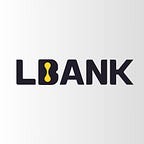The Evolution of Bitcoin (BTC) and the Proof-of-Work Mechanism
The popularity of Bitcoin (BTC) has been growing steadily over the past few years, becoming widely accepted as a financial alternative to fiat (physical money).
Since it is decentralised and peer-to-peer, blockchain like crypto networks require some way of achieving consensus and security, hence, the PoW mechanism.
Bitcoin was introduced in 2008 as an open-source and peer-to-peer payment system that holders can use to buy, sell and exchange goods and services. It operates based on cryptography, P2P networking and Blockchain technology. Bitcoin was invented by an unknown person or group of people under the pseudonym Satoshi Nakamoto.
To elaborate, transactions are verified by network nodes through cryptography and recorded in a public distributed ledger called the block chain. The ledger uses its own unit of account, also called bitcoin. The system works without a central repository or single administrator and is referred to as decentralised digital currency.
Distributed consensus allows multiple parties to make transactions in a peer-to-peer network. The main advantage of this approach is the lack of centralised authority in charge of transaction processing. This makes it difficult for cybercriminals to attack the blockchain.
In many ways, BTC appears similar to a physical currency in that it possesses a finite supply that can be used for goods and services or exchanged for other goods and services.
Each “coin” is unique, but the number of bitcoins won’t exceed 21 million. Like physical money or gold, any bitcoin can be divided into smaller units called “satoshis,” but doing so will require more computing power than you’ll probably ever have access to (the network requires an increasingly difficult computation that takes longer with each new block added).
Furthermore, Bitcoin’s adoption rate has gone up the roof and it is expected to rise as more organisations and entities engage in educating the masses about the intricacies of cryptocurrency and blockchain just as LBank is currently doing.
A few other municipal and national governments have also adopted bitcoin in some form. El Salvador and the Central African Republic have made bitcoin legal tender, while Ukraine is currently accepting bitcoin donations to help finance the country’s resistance to the Russian invasion.
Bitcoin and the Proof-of-Work Consensus Protocol
Bitcoin, the world’s first cryptocurrency, uses a consensus algorithm — the Proof-of-Work (PoW) protocol — in which all participants in the network compete to solve complex mathematical problems.
The protocol rewards participants who solve the problems correctly with a set amount of newly minted Bitcoins. Because it relies on this consensus mechanism, Bitcoin can be considered a decentralised digital currency.
The Proof-of-Work Mechanism is the backbone of the blockchain. The PoW mechanism validates transactions through mining and adds transactions to a public ledger. The public ledger, also known as the blockchain, allows users to verify transactions through consensus. Due to the way it works, the system can prevent double spending and confirm payments with absolute certainty.
Proof-of-Work (PoW) is a type of algorithm that uses the energy of computer hardware to solve mathematical problems. A user’s computer will use electricity and computing resources to compete in a cryptographic race against other nodes until they solve the puzzle.
The first user to solve the puzzle is allowed to add a block of transactions (aka. a “block hash”) to the blockchain they are verifying. By design, this process of solving every single block hash slows down as more and more computers join the network making it computationally impossible for a bad actor to try and brute force other users’ private keys to steal their funds by trying every possible password combination until one works.
A Guide to Buying Your First Bitcoin and Making Your First Trade
To buy Bitcoin or any cryptocurrency, you will need a crypto exchange where buyers and sellers meet to exchange dollars for coins and vice versa. There are hundreds of exchanges out there, but as a beginner, you’ll want to opt for one that balances ease of use with low fees and high security.
You can use a top crypto exchange like LBank, listed by CoinMarketcap as the 15th most valuable trading platform in the world by market capitalization and trading volume to buy, sell and store your Bitcoin and other altcoins.
Before you can start your trading activities on the platform, you will have to download the app on your iOS or Android mobile as well as the official website: LBank.info.
Select a Payment Option
After you may have installed and completed your registration, you have to fund your account before you can begin trading in Bitcoin. On LBank, you can fund your account through bank transfers, Credit/Debit Cards, P2P your cryptocurrency wallet or other payment gateways verified by the exchange.
Place an Order
Once your account is funded, you can place your first order to buy Bitcoin on LBank. You simply have to click on ‘Markets’ select BTC/USDT or go search and input Bitcoin’s ticker symbol (BTC).
You will then have to input the amount you want to purchase, you can either buy a unit of Bitcoin or a portion. That’s because it requires a large amount of fiat to buy a single Bitcoin. For instance, if Bitcoin’s current price was $22,968, you’d need to invest that much to purchase a full unit.
LBank Provides Users a Safe Storage System
LBank offers users a safe and secure platform where they can hold their BTC and other cryptos. We ensure that your portfolio is protected from hacks and any other security bridges.
Due to the high rate of hacks that have occurred in the crypto space, it is crucial to choose a secure platform such as LBank that has never been hacked. Also, the responsibility of safeguarding your private keys or password is eliminated compared to a non-custodial wallet, which requires utmost precautions.
Disclaimer: The opinions expressed in this blog are solely those of the writer and not of this platform.
